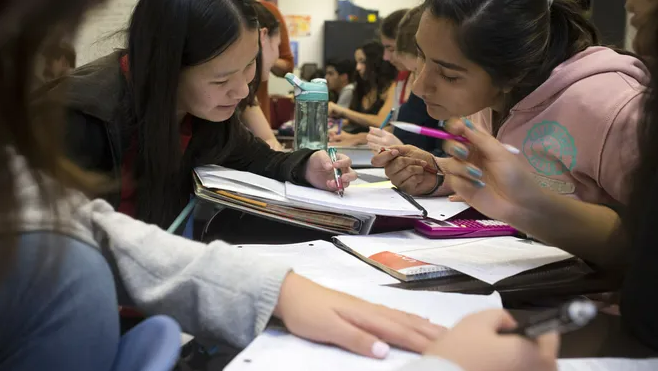
Calls to increase the control that parents have over their child’s educational opportunities often garner strong reactions from both advocates and skeptics. One common refrain from those that fear the expansion of charter schools is that efforts to redirect funding to these schools will “dismantle” the traditional district school system.
This winner-take-all mentality, where public schools “lose” and charters “win” is not only hurting our children; it’s a fundamental misunderstanding of the benefits of educational competition.
Charter schools have seen a steady increase in enrollment since the turn of the century more than 20 years ago. Since the beginning of the pandemic, when district schools shut down and forced kids to stay home, charter schools and homeschooling programs have exploded in popularity.
The reason parents have been shifting to charter programs is not difficult to understand. Parents were already concerned that their children were not learning enough in district schools, and the switch to remote learning only exacerbated these issues. Cultural issues and concerns about curriculum have also been a wedge factor.
These developments have led activists to grow concerned about the viability of public schools as the education space becomes more decentralized. For them, public schools can only exist in the absence of private charter programs. In a recent example of this line of thinking, Leon County Schools Superintendent Rocky Hanna decried Florida Gov. Ron DeSantis’ efforts to empower parents, saying:
“The leadership in the legislature and the governor have made it abundantly clear that their goal is to give every family an educational savings account to use at their sole discretion … That could potentially lead to the dismantling of the current public school system as we know it.”
The notion that public schools are being “dismantled” is not only empirically false but also theoretically unsound. To repeat: Charter schools have become more popular over the past 20 years. However, the number of students enrolled in public school over the last 20 years has not changed significantly. In fact, public school funding has increased since 2000.
Practically speaking, if charter schools are trying to “dismantle” the public school system, they simply aren’t doing a very good job of it.
It is true that public schools like the ones identified by the Tallahassee Democrat are over budget. Charter school skeptics argue that because charter schools siphon funds that would otherwise go to district schools, school choice is to blame for these cost overruns.
There are two problems with this argument. The first is that the public schools across the country are running over budget, regardless of charter school prevalence, often because of political jockeying within the state.
Second, the mere fact that public schools spend more than their budget allows does little to support the case that charter schools are to blame. As more children leave public schools to attend other institutions, the total number of students in the public school system, by definition, decreases proportionately.
Thus, budget issues do not stem from a lack of funds on a per-capita basis. Charter schools operate on less money per capita than traditional public schools. The real problem is that public schools’ fixed costs are far too high.
Fixed costs are the expenses an institution must pay no matter what. For example, schools need to pay for heating, plumbing, and electricity whether 10 students or 1,000 students attend class on any given day. Fixed costs vary from place to place, school to school, but public schools as a whole have fixed costs that are so high that any decrease in funding immediately makes their financial situation dire.
For example, one problem for public school administrators is that teachers’ unions have effectively bargained for nearly ironclad job security, making it difficult for administrators to reduce labor. This means that they can’t lay off teachers when students leave; revenues decrease, but expenses stay the same.
Thus, public school budget shortfalls are only indirectly caused by students leaving for charter schools; the real driver is systematic financial mismanagement that has made public schools unable to compete and adapt as other educational institutions enter the market.
The proof of this is evident in higher education. Numerous state colleges manage to compete with private institutions and are enrolling larger freshmen cohorts. In fact, public universities are historically less expensive than private schools and provide great value for families.
K-12 schools are actually better positioned than these same public universities to provide high quality educational opportunities. While many high school students aspire to go to prestigious colleges like UCLA or Cornell, few young children are eager to move to California or New England for fourth grade.
Parental choice has not “dismantled” public universities, nor will increased parental control over K-12 education be the end of public schools. Public schools should embrace the changing educational landscape and provide better instruction with more robust programming.
Rather than bemoaning the rise of new ways of educating children, public school administrators should focus on enticing parents to stay in local schools while reducing their costs so that they can teach effectively on leaner budgets.



[…] This post originally appeared at reimaginED. […]